|
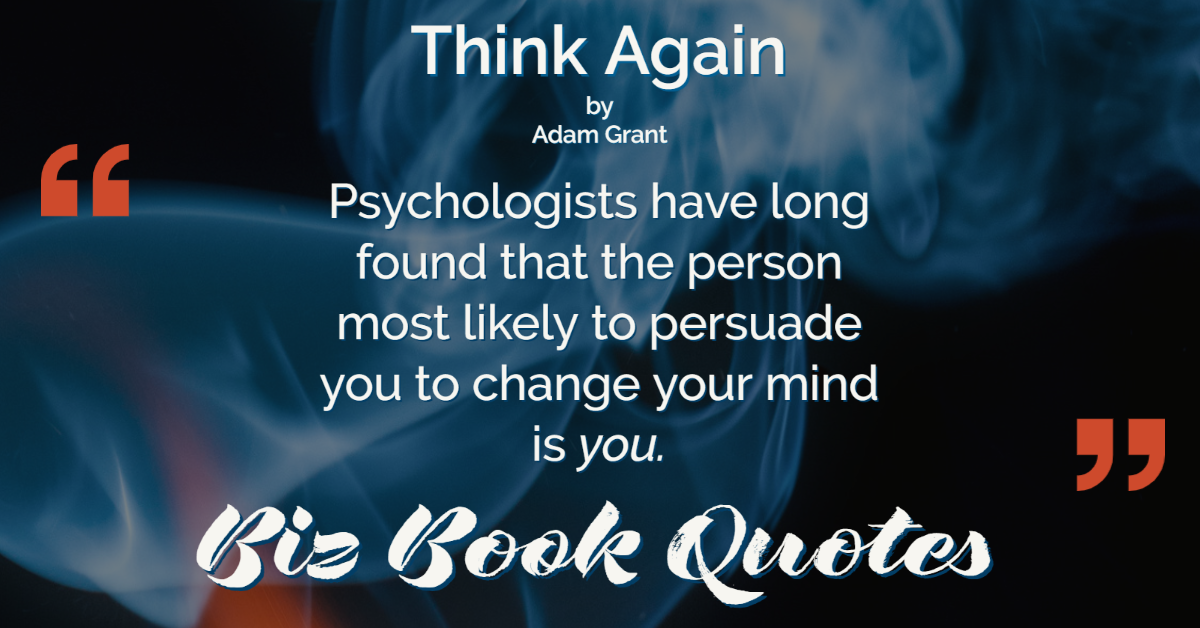
|
Think Again:
Psychologists have long found that the person most likely to persuade you to change your mind is you.
|
112 |
|
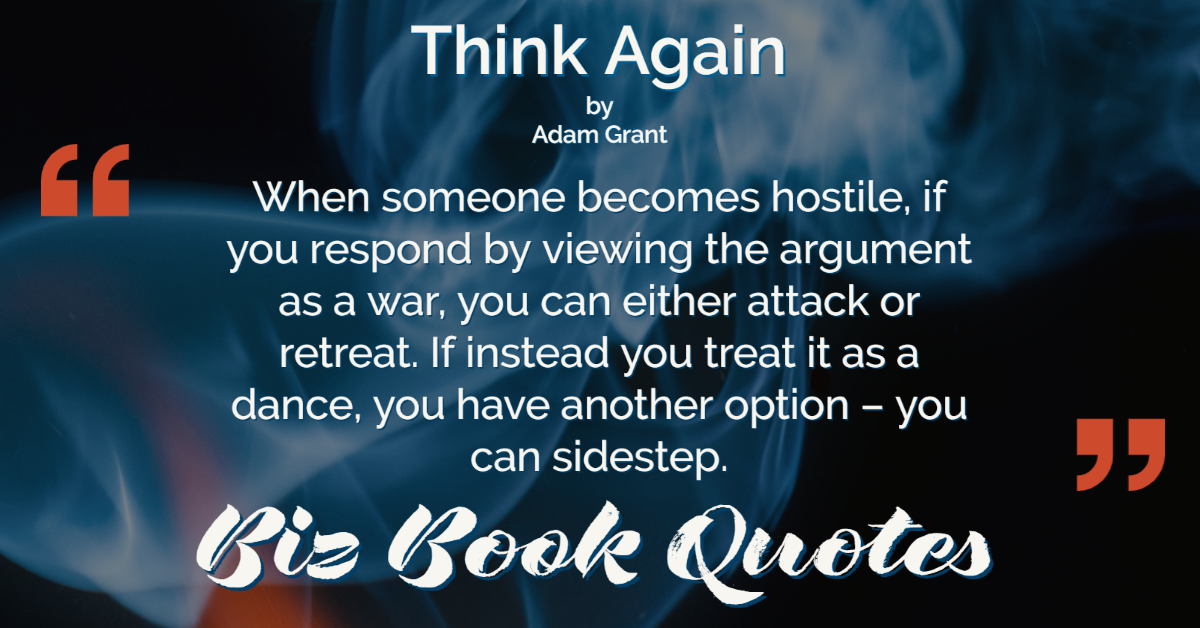
|
Think Again:
When someone becomes hostile, if you respond by viewing the argument as a war, you can either attack or retreat. If instead you treat it as a dance, you have another option – you can sidestep.
|
115 |
|
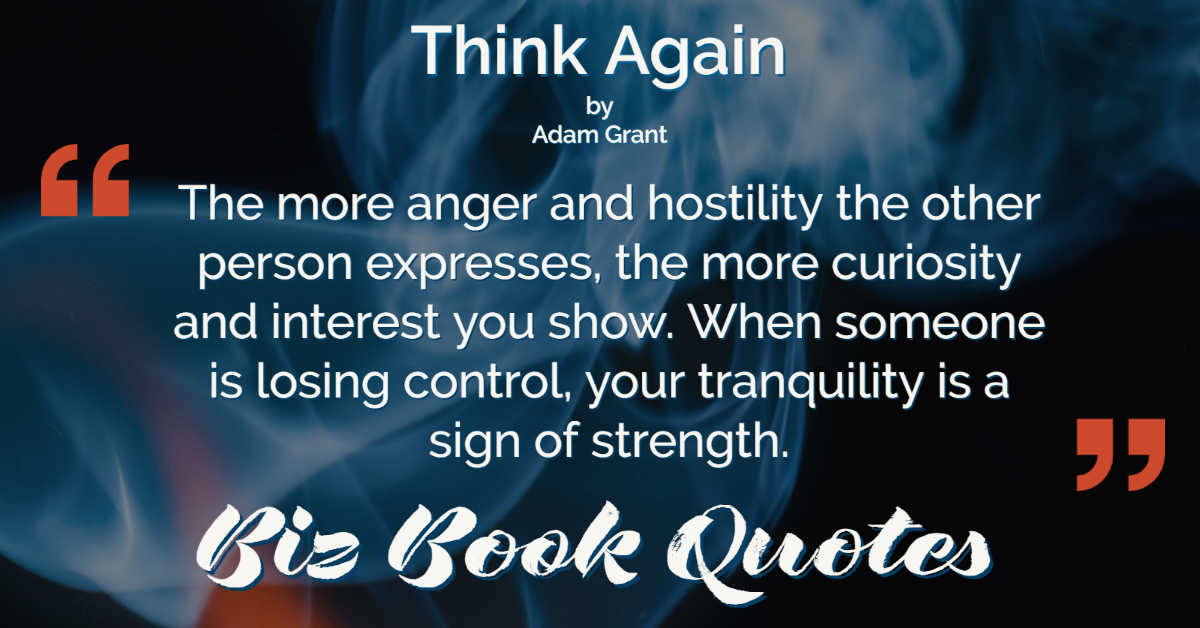
|
Think Again:
The more anger and hostility the other person expresses, the more curiosity and interest you show. When someone is losing control, your tranquility is a sign of strength.
|
115 |
|
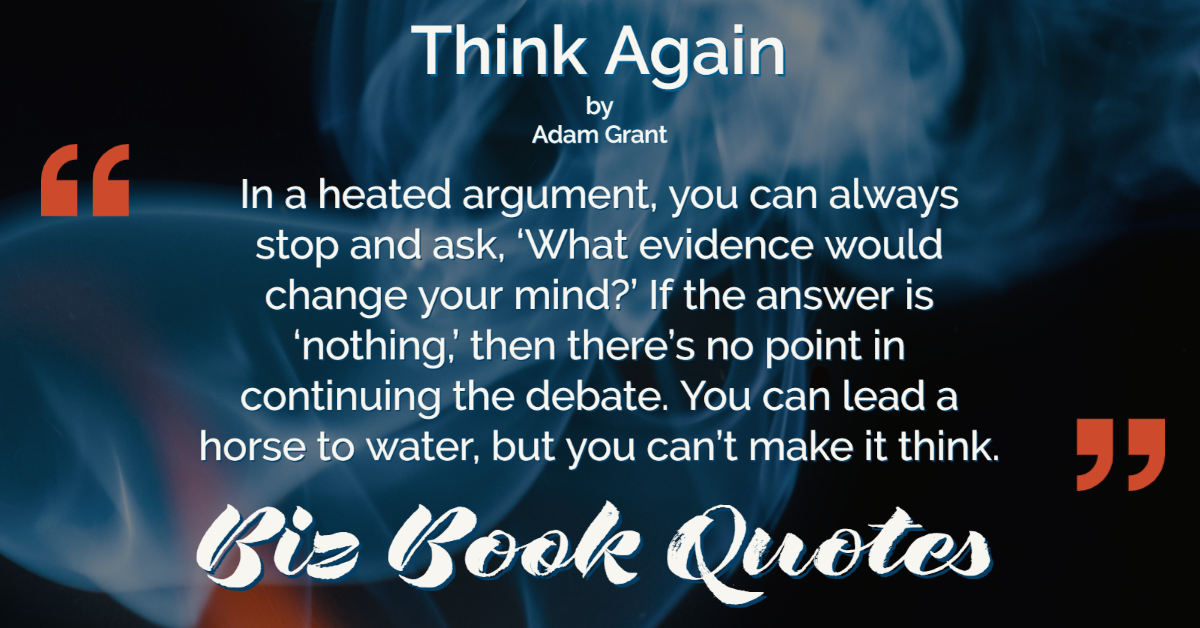
|
Think Again:
In a heated argument, you can always stop and ask, ‘What evidence would change your mind?’ If the answer is ‘nothing,’ then there’s no point in continuing the debate. You can lead a horse to water, but you can’t make it think.
|
116 |
|

|
Think Again:
When we hit a brick wall in a debate, we don’t have to stop talking altogether… start a new conversation, with a focus on understanding and learning rather than arguing and persuading.
|
116 |
|
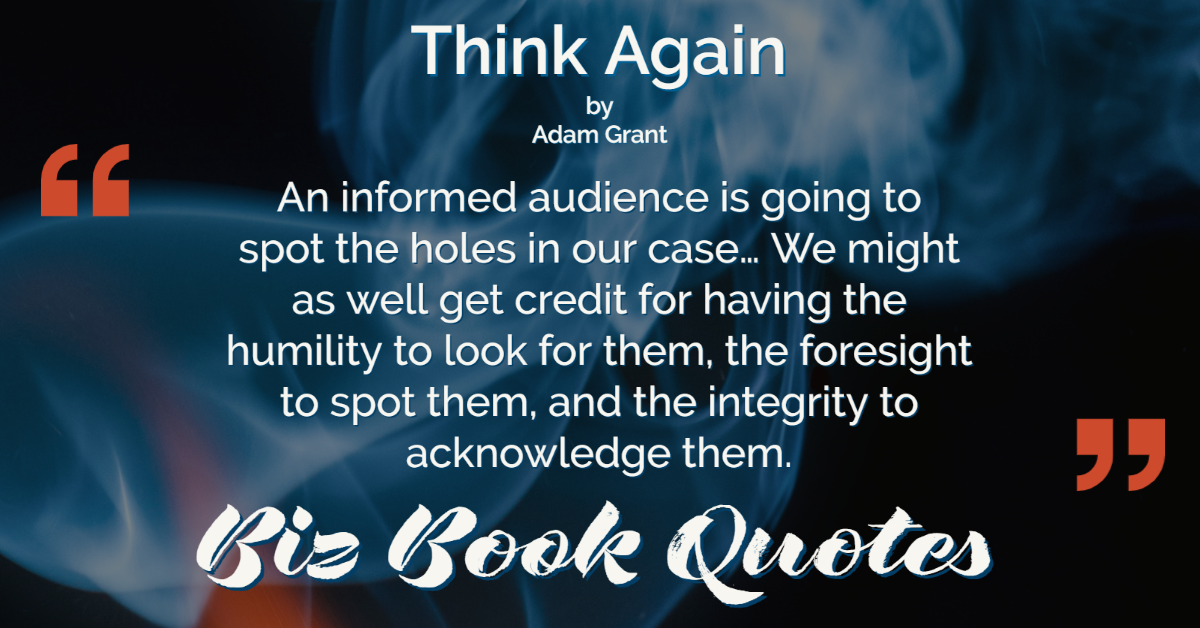
|
Think Again:
An informed audience is going to spot the holes in our case… We might as well get credit for having the humility to look for them, the foresight to spot them, and the integrity to acknowledge them.
|
119 |
|
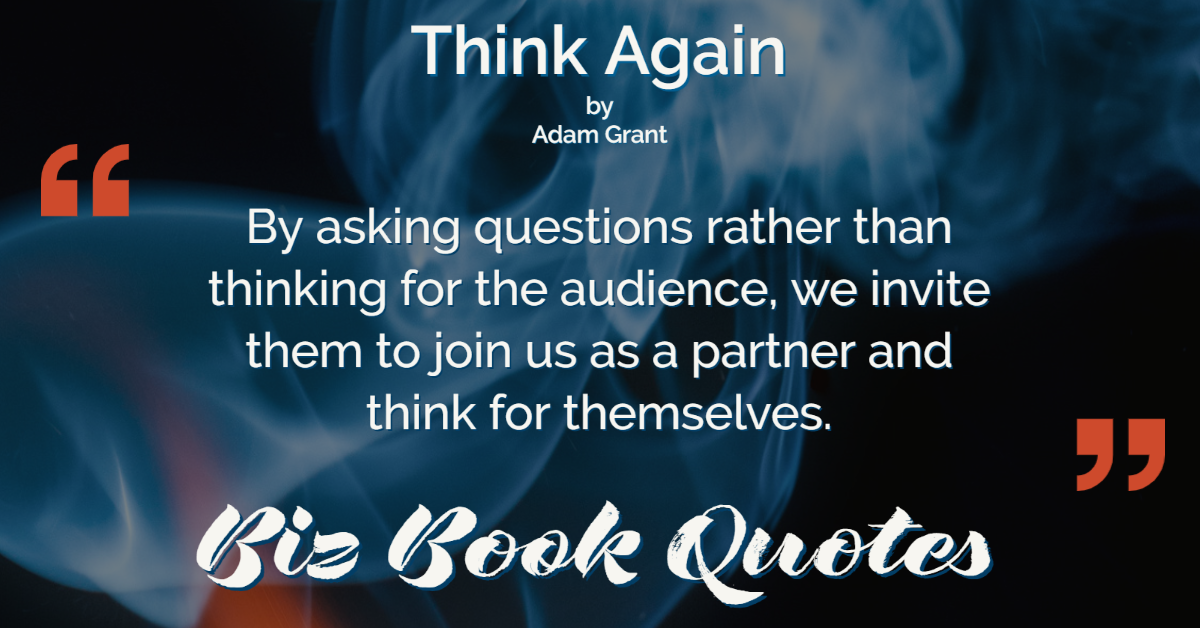
|
Think Again:
By asking questions rather than thinking for the audience, we invite them to join us as a partner and think for themselves.
|
119 |
|

|
Think Again:
If we approach an argument as war, there will be winners and losers. If we see it more as a dance, we can begin to choreograph a way forward.
|
119 |
|
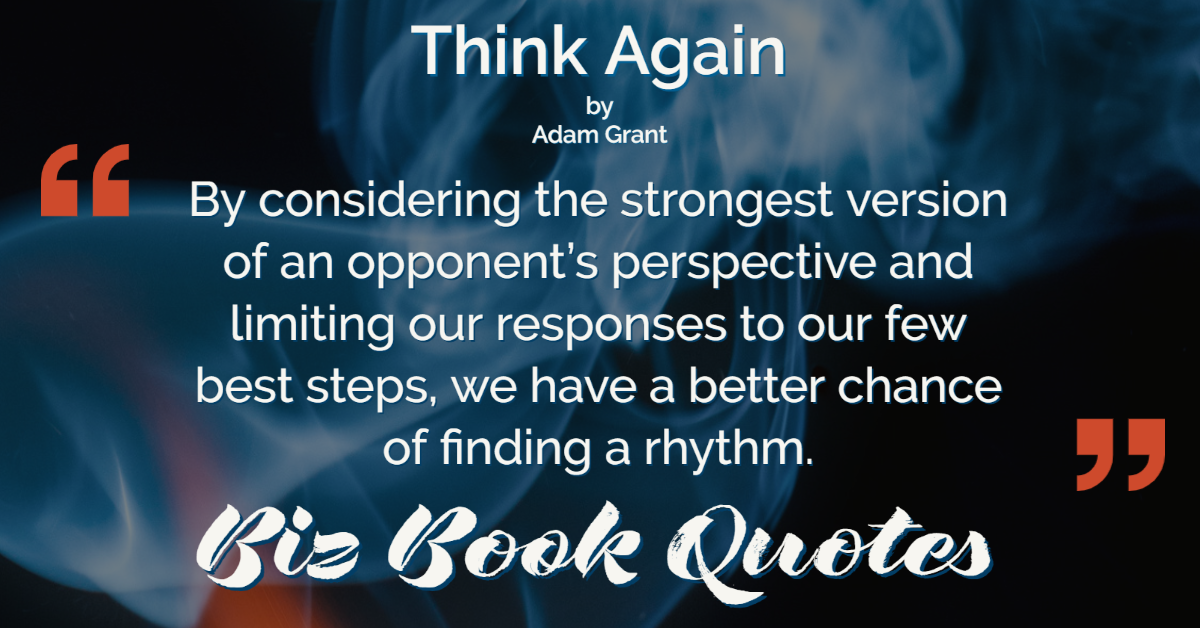
|
Think Again:
By considering the strongest version of an opponent’s perspective and limiting our responses to our few best steps, we have a better chance of finding a rhythm.
|
119 |
|
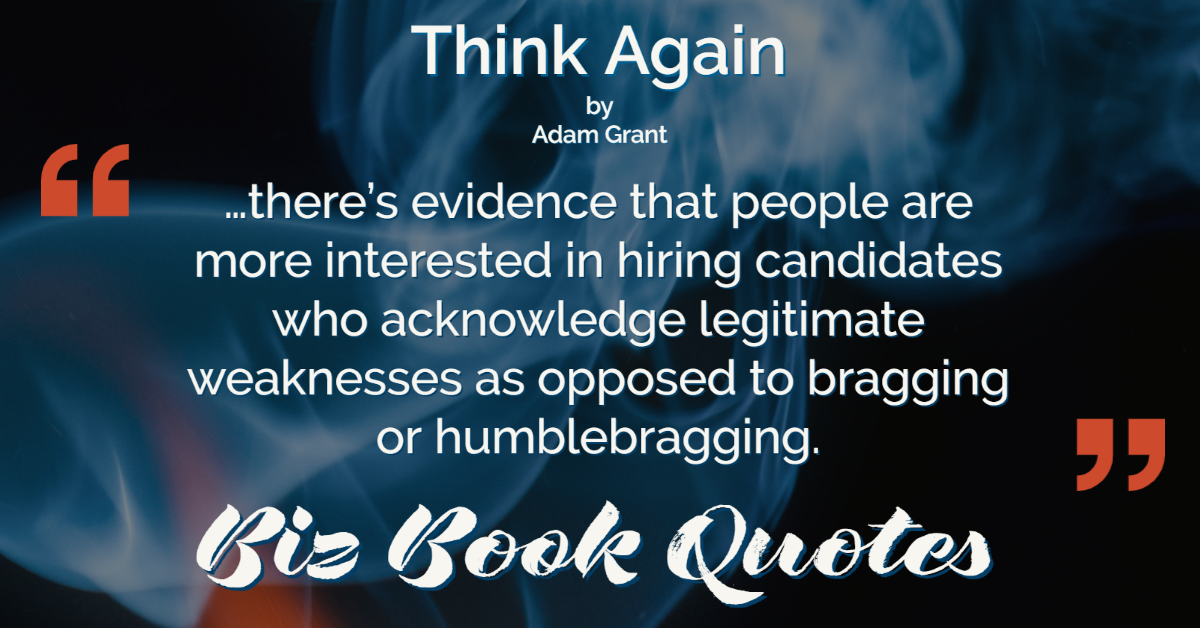
|
Think Again:
…there’s evidence that people are more interested in hiring candidates who acknowledge legitimate weaknesses as opposed to bragging or humblebragging.
|
119 |











